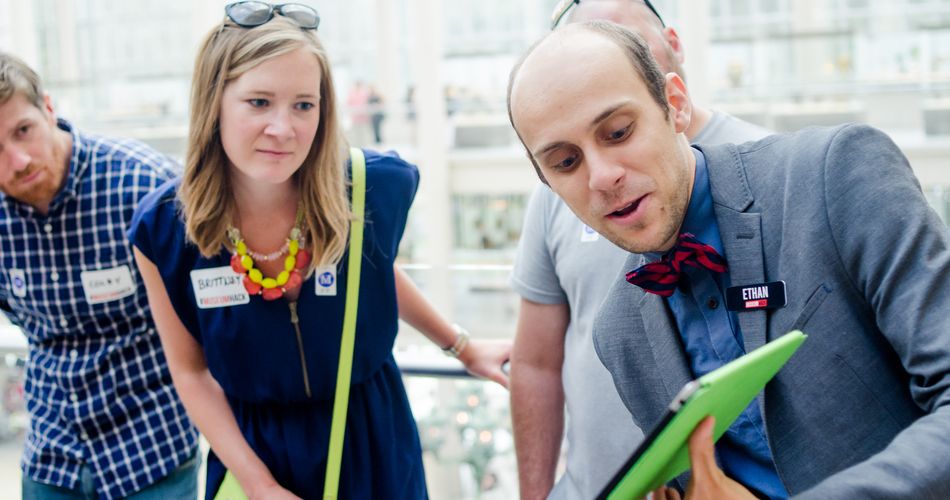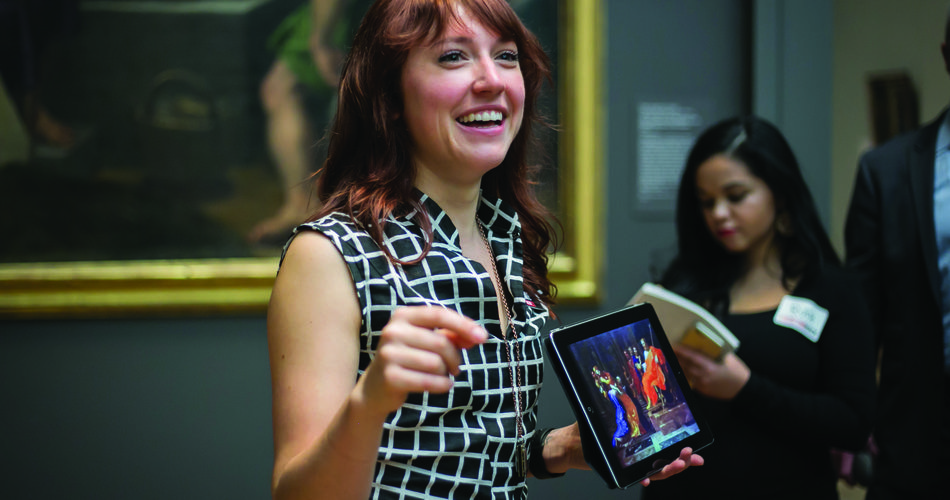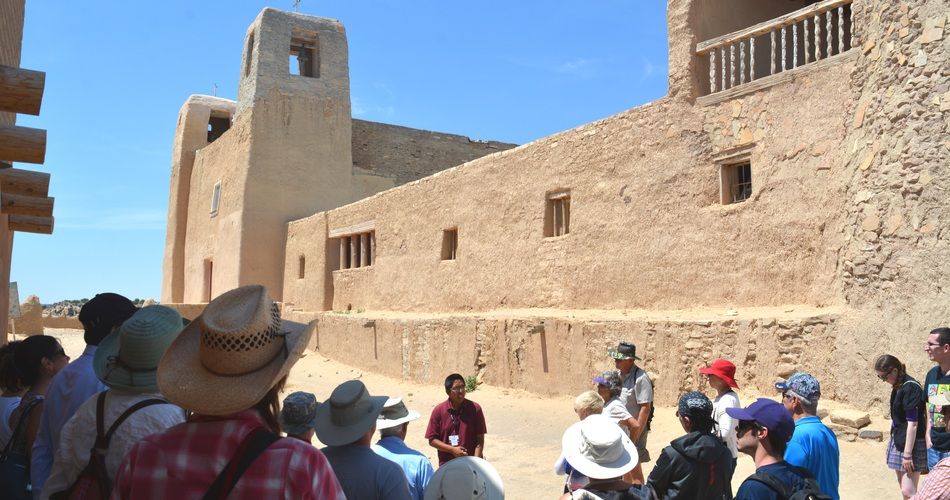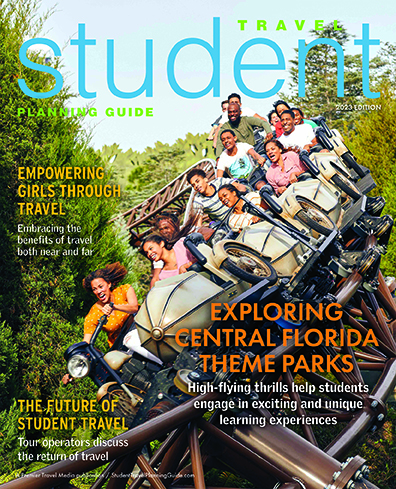These tips will help you choose a tour guide for your student tour experience
One of the most important components of a truly transformational student tour experience is the information shared by local tour guides you’ll hire and work with along the way. They can be an invaluable source of inspiration as they share their insider knowledge and stories with your students.
Whether it’s New York City or Washington, D.C. or Civil War battlefields, finding a good local guide, knowing when and how to book them, what to pay them, can be a tricky task. In this article we’ll help you make informed decisions and know how to find the right local tour guide.
What is a tour guide?
Let’s start with some terminology, which can get confusing. A student group tour often involves two different kinds of “guides”:
- the tour director (sometimes called the tour manager or trip leader), who stays with the group the entire tour, often facilitating logistics at the hotels, working with the bus driver, restaurants, etc. Their main purpose is to keep the tour running smoothly. They’ll often also know a lot about the various cities and sites you visit, but aren’t necessarily local to any one of them. You may consider hiring a tour director if you’re unfamiliar with where you’re going on your next trip.
- tour guides (sometimes called a “step-on guide” because they step onto your bus), live in the city or region, and offer local knowledge, sometimes specialized on a certain theme. You’ll meet them sometimes for a full day, sometimes for just 3-4 hours to give you a highlights tour.

Below we’ll focus on the role of the step-on, local guide.
Why use a local guide?
You might think that your knowledge of history and past experience of a city is enough to lead a group tour without a guide, but there are still many reasons why a local guide is great to hire.
- A different voice and perspective — a great student tour includes many different voices engaging with your students, for variety and diversity of knowledge and viewpoints.
- An expert introduction to the city or region — A step-on tour guide works best towards the beginning of your time in a city, when you’re all eager to learn as much as possible about your destinations. They’ll know logistically how to best navigate the city, lay a foundational knowledge, and get the students excited for the days ahead.
- Local, current knowledge — often what’s most interesting in a city is what’s happening currently. Local guides also help you navigate around events that may disrupt your schedule, like marathons or concerts. They might also know something special happening that could become an unexpected wow moment.
- Storytelling — beyond just knowing the facts, local guides at their best craft fantastic stories, weaving themes throughout their tour.
- Connections and recommendations to help you make the most of the rest of your trip, telling you about food or site options you didn’t even know about.

How to find a local tour guide
- Referrals: ask around on your Facebook network or friend group. Many families have participated in student tours, and may remember a fantastic guide experience. I run a global community of 6,000+ tour guides called TripSchool, and you can always contact us for a personal referral [https://thetripschool.com].
- Social Media: many local guides now make regular short videos on TikTok and Instagram (and YouTube of course!)
- Online Directories: There are local and global websites like Campfire [travelcampfire.com/guides] that list independent guides around the world that you can hire.
- Searching: You can also search for “step-on” student tour guide [NYC] to see organic search results. However, many fantastic local guides don’t have a web presence.
Choosing a local tour guide
It’s very common to ask for a phone call or Zoom to interview the tour guide before hiring them, and talk through your needs. Remember, however, that the guide’s time is valuable, and you shouldn’t expect a long series of calls before you make your decision. Consider the following points:
- Do you like their personality? The most important question to think about isn’t how much do they know, but whether you like the idea of that person standing in front of 45 students.
- Ask them a simple interview question: for example, what is your favorite story to tell on a tour, and how does it connect with students? Ask a question that helps you understand if they’re going to be a boring “just the facts” presenter, or someone really ready to engage with your students.
- Google them! Do they have a basic web presence? Testimonials? Videos or photos that make you trust them?
- Hire someone different than you. It’s great to get a different perspective on the place you’re going to. Beware your biases. As a New Yorker, I hear people say, I want a real New Yorker, with the classic accent. That stereotype doesn’t even begin to tell the story of New York City. For example, 38% of real New Yorkers are actually born in another country. And their perspective of ambition and overcoming adversity can be a fantastically interesting lens on the city.
- Can you afford them? You’ll find that the cost of a private local guide varies considerably. The more expensive ones generally charge more because they’re very good at what they do, and very in-demand, since the student season is so limited. This is not a place to cut costs and nickel-and-dime, since the learning experience is so important.
How to hire a local guide? How much does a tour guide cost?
- Costs vary by city or region, the most expensive being New York City and Washington, D.C.. In general, expect a minimum payment of $200 for a 3-hour private step-on tour, plus expected gratuities for fantastic service (for a large student group, tips range from $1-$5 per person for the tour). The costs for a stellar guide easily go up from there. Remember, you can often find someone cheap to do the job, but this is such an important moment in the trip.
- Generally there’s a 3 or 4-hour minimum, even if you only want the guide for one or two hours. This is because otherwise they’ll lose a longer job by working for you. Sometimes you might hire the guide for the full day, and even to join you for multiple days.
- Make a contract, even just by email. Get all the salient details and expectations in writing, so there are no misunderstandings on the day-of. Reconfirm the service ahead of time, and get the guide’s phone number.
- Plan your timing accordingly. A local tour guide often works a morning and an afternoon tour, so they can’t easily switch times and days around last-minute, because your schedule changes. If you’re late to the tour, the allotted time still must finish at the expected time, so they can work their next job.
- Each guide will have different payment policies. Expect a non-refundable deposit to hold their time and dates, and possibly full payment in advance.
With these guidelines in mind, you’ll be sure to have a phenomenal student tour experience.
By Mitch Bach
Main photo: Guided tour of the San Estevan Del Rey Mission Church in Pueblo, New Mexico.






